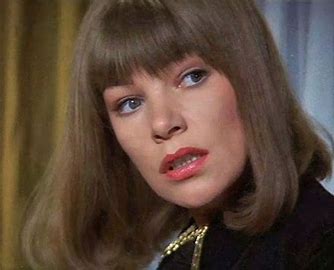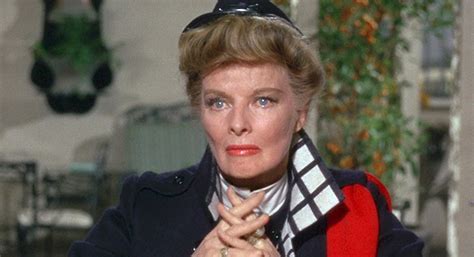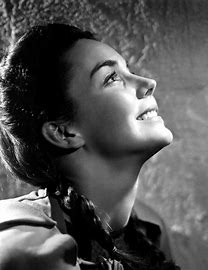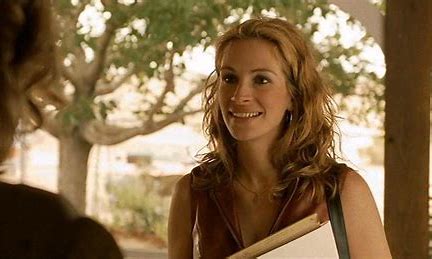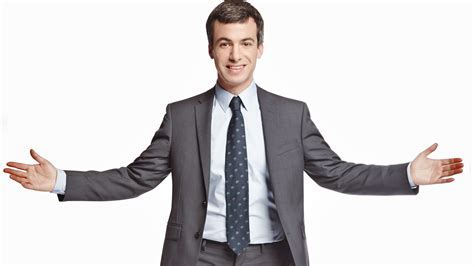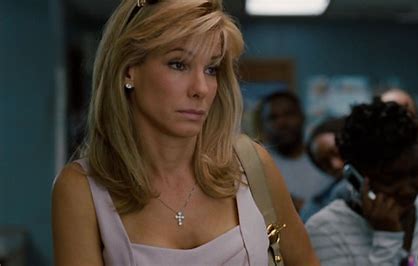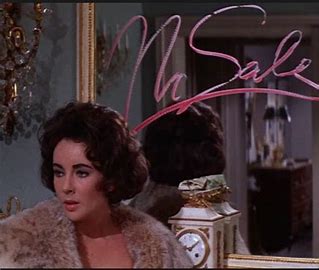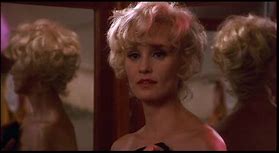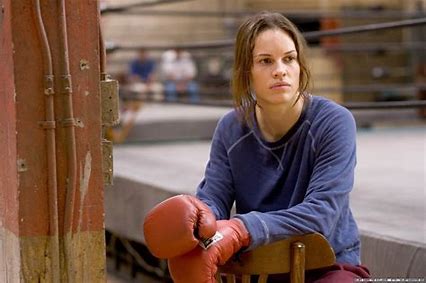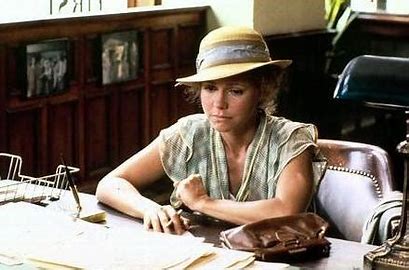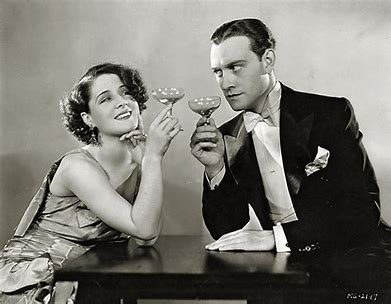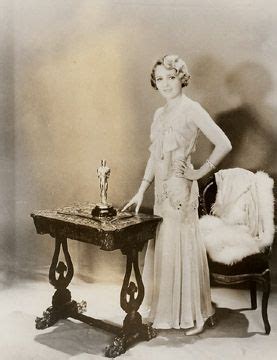Welcome back to the Best Actress Ranking!
Side-note: I wrote this post mostly over the weekend following the Supreme Court's decision to overturn Roe v. Wade...so a lot of this was written strictly to try to find a way to take my mind off of a truly horrendous and misguided decision that is only the first of potentially truly hideous new goals they may try to push for.
This may not be some of my best work in terms of writing, but I felt compelled to just put something out there and I figured I would focus on this.
We are now about to discuss #79-60 in the ranking. I do feel like some of these performances are actually not that bad. Most of them are even good, but I will go into it a little more throughout the rank and when I speak my final thoughts at the end.
LET THE RANKING CONTINUE!
----
#79 - Meryl Streep, The Iron Lady (2011)
As someone who has received more nominations than any other performer in history, Meryl Streep gets a lot of discussion in film circles.
Some deem her the best actress of her generation, some say she is the best actress EVER, some also say she is a very calculating actress who doesn't come across as natural but rather an actress in which you see the wheels turning in her head.
I am not overly critical of Streep. She has given us some truly fantastic performances, but I think she gives one of her most forced and mannered performances in the truly dreadful biopic The Iron Lady, about the life and career of a raging conservative bitch...or Margaret Thatcher, however you want to refer to her.
One thing I do want to quickly state is that I did really like Streep's work in the scenes in which she plays the elderly Thatcher...despite the fact that I loathed the idea of a film trying to get people to garner sympathy for Thatcher.
Despite truly fantastic performances in movies like A Cry in the Dark, The Bridges of Madison County, and Adaptation, it took a mediocre biopic to net Streep her third Oscar.
As for the other nominees, Viola Davis was far more worthy to win for her work, as was Rooney Mara for The Girl with the Dragon Tattoo.
However, so many truly remarkable were snubbed that season like Tilda Swinton in We Need to Talk About Kevin, Kristen Dunst in Melancholia, Elizabeth Olsen in Martha Marcy May Marlene, and even though it didn't get a true US release, Olivia Colman made a truly magnificent dramatic acting debut in Tyrannosaur.
_______________________________
#78 - Glenda Jackson, A Touch of Class (1973)
The 1973 Best Actress race was a bit of a free-for-all. It seemed as though most pundits felt any of the nominees could win...except for Glenda Jackson.
Marsha Mason and Ellen Burstyn seemed to have the most momentum, while Barbra Streisand seemed to be the populist fave. Joanne Woodward, along with Jackson, already had an Oscar.
Jackson's performance was seen as something of a departure from the other nominees. While the other performances came from various forms of drama (which is normally what the Oscars go for rather frequently), Jackson came from a rather cynical romantic comedy and it was not only a departure from the contenders, but a departure for her.
There have been similar instances throughout the years of performances winning in close races that seemed to benefit from being a lot different from their peers (i.e. Marisa Tomei winning for My Cousin Vinny over 4 dramatic actress from either the UK or Australia), so it doesn't really shock me here per se.
Although, I do feel a bit mixed on the win. I think Jackson does a fine job but it isn't her strongest work. I feel like Burstyn could've taken this one, freeing up her slot from where she won the following year.
_______________________________________
#77 - Jennifer Lawrence, The Silver Linings Playbook (2012)
When I first watched The Silver Linings Playbook, I was mostly left a bit underwhelmed. I think a lot of that had to do with the fact that it was made by David O. Russell, a filmmaker whom I feel lacks a lot of subtlety and has a lot more ego.
Jennifer Lawrence being put into his universe certainly helped her, because it got her an Oscar and a couple of nominations for the succeeding films of his. However, his fascination with her still strikes me as odd.
She was only 22 when she starred in this film and yet she was cast to play someone older and play opposite Bradley Cooper. Her age is also a lot older in American Hustle as well.
Lawrence does a solid job with her characters, but something about them rings false. I do think we are approaching an era of her career where will we see potentially better things from her.
Even her performance in Don't Look Up, which features a sort of semi-dramatic/comedic outburst of despair, was done far better than anything she did in an O'Russell film.
Frankly, this Oscar should've gone to either Jessica Chastain for Zero Dark Thirty or Emmanuelle Riva in Amour.
________________________________________
#76 - Emma Stone, La La Land (2016)
I went into La La Land basically expecting the Second Coming of Christ after all of the reviews and Oscar Buzz had been overflowing over the internet.
My response to the film at the time was fairly positive though it has dimmed over time. One thing I did feel was that Emma Stone was the standout (I found Gosling to be unremarkable which makes his Oscar nomination truly one of my least favorite acting nods in quite some time), but the major difference was that I didn't really view it as Oscar worthy. I suspected she would get nominated but there were too many other people around her who gave superior performances: Natalie Portman in Jackie, Isabelle Huppert in Elle, Amy Adams in Arrival...and even someone like Viola Davis who demoted herself to Supporting even though she was the clear winner for me in Lead that year.
When Stone won the SAG award, I was kind of shocked. I wasn't following that season as closely as I had been in the past or have done in the last couple of years.
I get the Chazelle was going for a more natural and easygoing performance style with these two but I think that it mostly came off as very weak until the end when Stone got to perform "Audition (Here's to the Fools Who Dream") which relied more on the acting than the vocals.
Stone is a good actress, but this was not a role that I viewed as being a remarkable achievement.
I also adore that when La La Land was deemed the improper winner over Moonlight, she seemed more thrilled and happy and supportive of that film than her own.
I hope Stone wins an Oscar for a truly fantastic performance down the line because I know she is capable. She was even better in The Favourite even if her British accent was a bit uneven.
______________________________________
#75 - Katharine Hepburn, Guess Who's Coming to Dinner? (1967)
This is another win that was considered a bit of a surprise.
While many suspected Dame Edith Evans or Anne Bancroft to pull it off, Hepburn swept in to take it and it is crazy to say this now considering she has 4 Oscars but at that point, this was only her second win and she hadn't won since 1934's Morning Glory (which I already ranked in the previous volume).
This is a good performance. I want to make that clear.
However, I don't know if there is much there that makes me feel like it is worth an Oscar.
She does have wonderful moments, mostly when she gets to act opposite her partner Spencer Tracy...and a lot of people suspect that the immense sympathy they felt for her over his death led to this win.
I do have to admit that the famous final scene (which Spencer Tracy gives a great reading of a monologue to his daughter's pending marriage to Sidney Poitier) has some of the best reaction shots I have seen in a performance from Hepburn. In many ways, this was attributed to the fact that she knew Tracy was dying and it added an extra weight to the scene.
It is worth seeking out!
______________________________________
#74 - Marlee Matlin, Children of a Lesser God (1986)
Here's another win that was considered something of a mild surprise, as a lot of the buzz was geared towards Kathleen Turner in Peggy Sue Got Married.
Matlin's win is a historic one in various ways. Aside from being the youngest woman to win the Best Actress Oscar (she was only 21 at the time), she was the first deaf person to win an acting Oscar...something that would not be duplicated until her Coda co-star Troy Kotsur won Supporting Actor.
This is an example of a performance that I admire, but I am not sure if I necessarily deem it worthy of an Oscar.
I actually think this is becoming more and more of a common feeling for me as I go through this ranking. I often bemoan many of the winners, but the truth is, I actually don't hate a lot of these performances. They are good or solid, but I just don't find them Oscar worthy.
As it stands, Matlin is a wonderful actress and I actually think I should revisit this film because I do think she did an admirable job.
As for who I would've loved to see win, this would've been the perfect opportunity to reward Sigourney Weaver with an Oscar for her iconic Ellen Ripley in Aliens. It is honestly a miracle the Academy even nominated her for an Action/Sci-Fi film.
_______________________________________
#73 - Helen Hunt, As Good as it Gets (1997)
When people often talk about the worst winners in this category, one of the names to frequently pop up is Helen Hunt.
I actually think she does a nice job in the film and is certainly a lot better than many give her credit for...but it is still a case of me just not viewing it as Oscar caliber work. Nomination sure, but not an Oscar.
She does fare better to me than her co-star Jack Nicholson, whose win for this was rather baffling.
Hunt's Oscar clip from that year where she is crying and yelling at her mother only for it to end with a comedically reisnged "Okay..." was a great selection because it was one of the best scenes of a film that was otherwise rather mawkish and a lesser work from James L. Brooks who actually concocted his best film back in 1987 with Broadcast News.
Dame Judi Dench was up for her work as Queen Victoria in Mrs. Brown and would've made for a superb winner. Someone who was snubbed that I found to be stellar was Susanne Lothar in Michael Haneke's original interpretation of Funny Games.
_______________________________________
#72 - Luise Rainer, The Great Ziegfeld (1936)
Luise Rainer, as I stated when discussing her other win for The Good Earth, was the first performer to win back-to-back Acting Oscars (around the same time Spencer Tracy did it in Lead Actor).
Her first win fares better than her second, but mostly suffers from the fact that it is a Supporting performance in Lead.
This was the same year that the Academy introduced the Supporting categories, which was an excellent decision...even if nowadays it seems like the fraud people down from Lead so they can have a better chance at a nomination or a win. Don't even get me started on how they put both Daniel Kaluuya and Lakeith Stanfield in Supporting for Judas & The Black Messiah.
Rainer benefitted from not just immense studio support from MGM but the fact she was in that year's Best Picture winner and was also perhaps the best thing about it.
What really cinched her win though was a scene in which she comes back into the film much later after she left it and congratulates her ex-husband Ziegfeld over the phone for his new marriage...but she realizes she still loves him. We watch her as her voice appears jubilant over the phone, but tears are pouring down her face.
A lot of film historians consider this the first and real definitive example of an "Oscar scene" in which one or two scenes might truly seal the deal for you when a voter is watching your film.
The scene does play is a sort of stylized manner like most films do from that decade, but Rainer does shine in it.
_______________________________________
#71 - Ginger Rogers, Kitty Foyle (1940)
No one was more surprised about Ginger Rogers winning for Kitty Foyle than Ginger Rogers herself.
When she won, she made a comment along the lines of "I don't know how it happened...but I have it!" and then for the rest of her life, she would gladly humble herself to talk about her glorious competition and how she really didn't think she had a chance.
Kitty Foyle was basically a "coming out" party of sorts for Rogers who was coming off her string of films in which she did everything Fred Astaire but backwards and in heels.
*Sidenote, she is stellar in those films, like Swing Time and Top Hat. She and Astaire were easily one of the best duos in film history*
Kitty Foyle was Rogers' dramatic introduction, and the results were...not too bad.
The film itself is pretty typical early 40s melodrama, but Rogers does do a solid job...actually I would say she is very good.
However, this is a case where, yet again, it just doesn't feel like a performance that makes me go "Wow! Give that lady an Oscar!"
The sad truth is that a lot of the expectation from that season is that many voted for Rogers more so because people wouldn't dare vote for the likes of Katharine Hepburn.
At this time, Hepburn was coming off of her "Box Office Poison" era in which many articles bemoaned what a difficult person she was...although that was simply because she was a woman who would not heed to chauvinistic attitudes...tale as old as time.
Some people claimed they would refuse to vote for Hepburn because of her demeanor and articles of the time would claim she would never win another Oscar again.
Jokes on them considering she still holds the all-time record with four wins.
I do think Hepburn winning for The Philadelphia Story would've been a superb win, as would've Joan Fontaine for Rebecca.
I also think Rosalind Russell was robbed of a nom for His Girl Friday.
______________________________________
#70 - Ingrid Bergman, Anastasia (1956)
Here comes another narrative "We Forgive You!" win.
The truth is that the fact that Hollywood felt that they needed to "forgive" Bergman is a joke. The controversy was that Bergman basically had an affair with Italian director Roberto Rossellini.
How dare she.
It is a truly sexist story. I would recommend watching YouTuber BeKindRewind's video on Bergman to get the full story. It is amazing how sensitive the morals were, especially towards women, back in the 1950s.
Maybe we ought to get used to it since, as of this writing, the Supreme Court just overturned Roe v. Wade so we are being forced back into conservative ideology.
Bergman's win here also benefited from relatively uninteresting competition, like Deborah Kerr in The King and I and Katharine Hepburn in The Rainnmaker, which are both good performances but not among their best.
Bergman has also been better than she was in Anastasia. It is a good performance but one that doesn't exactly draw much passion.
_____________________________________
#69 - Kate Winslet, The Reader (2008)
In a 2005 episode of Ricky Gervais' HBO show Extras, he and Ashley Jensen work on a Holocaust film that stars Kate Winslet as a nun. There is a scene in which she tells them that the only reason she is doing the film is to net an Oscar since Holocaust movies like Schindler's List, The Pianist, The Diary of Anne Frank, and Sophie's Choice were Oscar magnets.
And in the case of The Reader, it did indeed net Winslet her elusive Oscar.
However, it was not even her best performance from that year.
I much preferred her work in Revolutionary Road opposite her Titanic co-stars Leonardo DiCaprio and Kathy Bates.
The Reader is based on a novel by Bernhard Schlink about a teenaged boy who is seduced by a female Nazi that is twenty years older than him...and eventually, he finds out during the Nuremberg trials that she had a rather...peculiar kink...we can put it that way I suppose.
The film's Best Picture nomination was considered to be something of a controversial selection at the time as it took a spot that many expected would go to The Dark Knight.
It caused such an uproar that even during Hugh Jackman's opening number hosting the Oscars that year, his joke song about The Reader was all about having not seen it because he was watching The Dark Knight.
The nomination also led to the Academy choosing to expand the nomination list from 5 to 10, which was a practice the Academy practiced during the 1930s.
As much as it may have allowed great films to slip in, the next year it gave us nominations like the truly horrendous The Blind Side.
Thanks, The Reader...
____________________________________
#68 - Jane Fonda, Coming Home (1978)
I have always had a rather mixed opinion on Fonda as an actress.
When she is good, she is GREAT.
It isn't that she is bad, per se. She just tends to not always be as emotive, and it gives a lifeless feel to some of her performances. I could sort of compare it to some of the same issues I have with Scarlett Johannsen, who often divides people with her acting.
In the case of Coming Home, Fonda was in the early stages of her comeback after spending a few years in relative obscurity and scorn after her visit to Hanoi.
*Side note: I adore Jane Fonda and her activism. No judgement or hatred here*
This was also one of the first major films (along with that year's Best Picture winner The Deer Hunter) to have a Vietnam-centric theme in which Fonda plays Sally Hyde, a conservative nurse who ends up developing a romantic interest in Luke (Jon Voight), an angry and frustrated vet who was left a paraplegic, while her husband Bob (Bruce Dern) is still deployed.
A lot of the issues with this film due stem from it being rather melodramatic and an example of Hal Ashby's sort of erratic abilities as a director.
I also did not find myself as invested in this love triangle, as I couldn't garner much sympathy for Dern's character, nor did I really find Voight to be that appealing either.
Fonda does sell it the best, but she just isn't quite there. I feel like the movie is nowhere near as radical as wants to be presented as.
Fonda also won over two truly magnificent performances:
Jill Clayburgh in An Unmarried Woman is one of the finest performances of the 70s. Vibrant, raw...actually I will let the film's tagline take it from here: "she laughs, she cries, she feels angry, she feels lonely, she feels guilty..." It goes on and on. It is one of the best performances to truly run the gamut of emotions.
Then you have Ingrid Bergman in Autumn Sonata, a truly sterling performance that was actually the finest of her career...but considering she already had 3 Oscars and the Academy was still very stringent about honoring performances and films in a foreign language, she didn't seem to have much of a chance.
_____________________________________
#67 - Halle Berry, Monster's Ball (2001)
As of this writing, Halle Berry remains the only woman of color to win a Best Actress Oscar...and it is shame that it is for a movie that is such a sleazy melodrama in which she plays a trashy character who mainly serves as a redemption piece for the racist character played by Billy Bob Thornton.
Now let's watch them have one of the worst sex scenes ever filmed...
Halle Berry stunned everyone with her lovely performance in Introducing Dorothy Dandridge just a couple years prior to her work in Monster's Ball.
She has talent...and yet, after this Oscar win, she has struggled for 20 years. She finally had a bit of a comeback with her directorial debut Bruised, but despite a solid acting/directing job, the movie was mostly subpar.
I think Berry does as good as she can in a film this low-brow...but it does just come off as a bit cringeworthy at times.
I am not really happy with any of the Best Actress nominees that year honestly.
The fact they snubbed Naomi Watts for her dual role (in a sense) in Mulholland Drive is simply criminal. Also, other snubs included Tilda Swinton in The Deep End and Nicole Kidman for her work in The Others...but she was nominated for Moulin Rouge instead.
Even though she wasn't technically eligible until the following year, Isabelle Huppert's work in The Piano Teacher is among the finest of her career.
___________________________________
#66 - Julie Andrews, Mary Poppins (1964)
I still think this is one of the more interesting wins we've seen in this category.
A lot has been said about the legend of Julie Andrews getting passed over for the film adaptation of My Fair Lady while her stage co-star Rex Harrison still got the reprise his role.
Mary Poppins would be considered the biggest success of Walt Disney in terms of its acclaim and award status, but such widespread acclaim for a Disney film of its kind would never happen again.
Andrews would win the Oscar over competition that was mostly intensely dramatic like Anne Bancroft in The Pumpkin Eater or Kim Stanley in Seance on a Wet Afternoon.
There is no denying the charisma and screen presence of Andrews, but I have always waffled on this win...and I say that as someone who actually adores Mary Poppins.
It is not that Andrews does anything wrong. In fact, you could say she is "practically perfect in every way" in relation to what the role calls for. The only thing is I am not sure it warrants an Oscar.
My mood typically changes on the matter more often than it probably should.
At the moment, I am more inclined to think Bancroft deserved this one.
__________________________________
#65 - Jennifer Jones, The Song of Bernadette (1943)
Jennifer Jones is another actress who doesn't exactly seem to have stood the test of time in terms of discussion and praise. It isn't that she is bad, but I also never found her to be truly distinctive.
While Song of Bernadette might be her best work, it is also not anything particularly strong.
This is also another case of a film that is simply too overlong, and it also gets docked points for being essentially religious propaganda.
Jones might be the best thing about it, but she is also overshadowed at times by Vincent Price as the prosecutor.
In the end, I am not overly passionate about any of the nominees from that year so I will just let this one slide.
___________________________________
#64 - Jane Wyman, Johnny Belinda (1948)
I have more positive things to say about Johnny Belinda as opposed to Song of Bernadette, but I do still think that isn't a great film; maybe just a pretty good one.
What really helps the film is the performance by Jane Wyman, who gives a very heartfelt performance as a deaf-mute woman who was raped.
I think for its time, the film does come across a lot better than it could have and I think some of that is a testament to Wyman.
However, I think that the performances by Olivia de Havilland (The Snake Pit) and Irene Dunne (I Remember Mama) would've been more worthy of an Oscar.
Jane Wyman also got a second award of sorts around this same time because she got a divorce from Ronald Reagan.
I would say great success, but still though, Wyman was a Republican.
___________________________________
#63 - Julia Roberts, Erin Brockovich (2000)
Coming off a decade of being America's Sweetheart and a Box Office Stalwart, Julia Roberts' success with Erin Brockovich was a prime example of Hollywood just dying to give such a huge star their due with an award.
Roberts does have a lot going for her.
The film has a pretty solid script; she is being directed by Steven Soderberg; her co-stars include the likes of Albert Finney and Aaron Eckhardt.
She also does rather well, too. I am just not sure it really measures up to being one of the best in the category.
It's a star turn, but it didn't always feel as earnest or honest...especially in some of her bigger moments.
Of the nominees, I think Ellen Burstyn in Requiem for a Dream was an easy call.
Also, it never would've happened but Maggie Cheung's beautiful work in In The Mood for Love would've been lovely to see here.
____________________________________
#62 - Shirley MacLaine, Terms of Endearment (1983)
"I'm gonna cry because this show has been as long as my career!"
The perfect comment from MacClaine when she won her overdue Oscar that many, including me, felt she deserved nearly 25 years earlier for The Apartment...and also the fact that the 1984 Academy Awards were, at the time, the longest ceremony until the truly horrid stretch of ceremonies from the late 90s/early 00s.
MacLaine winning here wasn't a surprise and I do think she gives a performance with a lot of bravado and great chemistry with all of her co-stars...but I also found myself more drawn to that of Debra Winger in the same film. How she reacts to her mother, played by MacLaine, always struck me as the better acting masterclass.
I do think MacClaine's outbursts don't seem as compelling as many may make them out to be, whether it be her not being happy about being a grandmother or telling the nurses to "Give my daughter the shot!!!!"
It comes across as a performance trying too hard for an Oscar.
That actually opens up a whole other discussion of sorts because there are most definitely performances that I have loved which contain a lot of yelling and screaming. However, it is interesting how some strike us as stunning while others strike us as over-the-top.
Art is subjective after all.
______________________________________
#61 - Renee Zellweger, Judy (2019)
Talk about a comeback story.
After Zellweger won a Supporting Actress Oscar for Cold Mountain, her career seemed to promptly decline. It is kind of crazy because between 2000-2004, it was as if Zellweger was pretty much everywhere you turned.
She undeniably came close to winning a Lead Oscar for her work as Roxie Hart in Chicago, but lost to Nicole Kidman.
After over a decade of mostly forgotten flops and eccentric behavior that became fodder for the press...not to mention the shock at her plastic surgery a few years ago...it was a surprise to many, including myself, when it was announced that Renee Zellweger would be starring as Judy Garland in a biopic set during the final year of her life.
This became one of those topics where people seemed to feel like this would either be a surprising success or a massive flop that would further tarnish her career.
Obviously, we know now that it was a success for her.
Do I think she was a success?
I am mixed, as evidenced by my placement for her.
I do commend her highly for doing her own singing (even if she sounds nothing like Garland) and I do think she nails a lot of Garland's physical mannerisms...but I also think this is a performance that is actually too polished.
This was supposed to be Garland during the final year of her life, in which she was extremely frail. I don't think the film truly portrayed the extremities of how worn out she was...and, not to mention, it took liberties which only made the film a little peppier than it had any right to be.
Zellweger has talent and I think the performance mostly worked based on what she did, but it was still not what it needed to be to make me feel like it was a successful Judy Garland biopic vehicle.
I think the best performances by lead actresses from that year were:
Lupita Nyong'o, US
Adele Haenel, Portrait of a Lady on Fire
Florence Pugh, Midsommar
Alfre Woodard, Clemency
Awkwafina, The Farewell
_______________________________________
#60 - Jodie Foster, The Accused (1988)
A movie like The Accused is a bit of a slippery slope.
On one hand, it is important to show a story about how sexist it is for society to say that a woman is asking to be raped simply based on how she dresses or acts.
On the other hand, I feel like the film was maybe a step above an average TV movie in terms of quality.
Jodie Foster's performance is what saves the film, but it is another case where the film's script and direction mostly bring her down as a lot of is presented in such a one-note manner.
However...the performance certainly warrants significant praise when it comes to Foster's truly heartbreaking work in the infamous gang rape scene, in which 3 men rape her up against a pinball machine while others cheer it on.
It is a very uncomfortable scene...to say the least. I almost wonder if it was even necessary to even have it go on for the entire amount of time it did, but I have to really commend the film for that.
It is almost as if to say "We are forcing you to watch this so you can understand that a woman is not always asking for it!"
Foster shines in certain moments, particularly that infamous scene which no doubt netted her the Oscar.
However, I would be more inclined to have given this award to either Glenn Close in Dangerous Liaisons or Meryl Streep in A Cry in the Dark.
__________________________________________
FINAL THOUGHTS:
As I finish this volume, I still find myself rather amazed at how I don't dislike a lot of these performances.
Whereas the Best Picture ranking had me going on a rampage well into the second volume at least, I think this one just simply comes down to me just not preferring these performances when comparing them to the others...or even if they won over a better candidate, I might just think they were good but only worthy of a nomination.
One thing is for sure, and that is once I get to my top 20, I am going to be sorting through some truly magnificent performances...even if some of them may not have been my personal choice in their given year.


